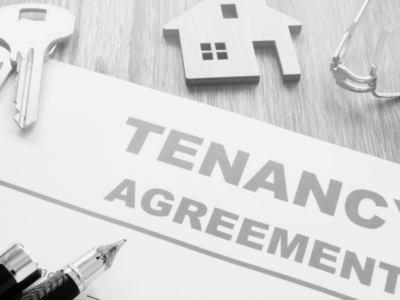Landlords, estate and letting agents, property managers and property owners should be aware that the clock is ticking towards the introduction of new safety regulations concerning carbon monoxide and smoke alarms.
From October 1, the Smoke and Carbon Monoxide Alarm (England) Regulations, which have been effective since 2015, will be amended to extend some of the rules in place.
The amendment will apply in Wales from the start of December.
The main changes are that:
- A carbon monoxide alarm will be required in any lived-in room with a fixed combustion appliance (excluding gas cookers);
- A smoke alarm will need to be installed on each storey of a domestic property with ‘living accommodation’;
- Landlords and agents must replace or repair any faulty alarms if a tenant informs them there is an issue.
Local authorities will have the power to enforce these new regulations.
Landlords found to be in breach of them face fines of up to £5,000.
With not long to go until these rules take effect, it’s imperative that landlords ensure their properties are compliant.
Landlords being held to account
These new regulations are the latest example of legal changes which are putting a greater focus on safety in rented properties.
As a result, landlords are under the spotlight like never before and are being held to account for their actions – or lack of action.
Those in breach are being hauled before the courts and fined and shamed if convicted, with a few reported cases summarised below.
For example, since July 1 2021, all residential landlords have had to ensure that electrical installations in their properties are safe and are inspected and tested regularly.
The first fine – a penalty of £1,600 – was imposed on a landlord in Coventry who failed to provide proof that mandatory checks had been carried out at a property he owned.
A landlord in Bury, Greater Manchester, recently had to pay £7,500 for not complying with electrical safety standards.
He failed to produce a valid Electrical Installation Condition Report for a house he owns and lets out.
Environmental health officers from Bury Council were unable to determine whether the electrical installation was safe and used their powers to undertake an EICR at the house.
The installation was found to be unsatisfactory and works were needed to make it safe.
The council emphasised it was determined to improve standards across the private rented sector – a mantra repeated across the country as local authorities get tough on offenders.
In Liverpool, a private landlord was recently prosecuted for not having smoke alarms and for leaving plug sockets hanging from the walls, with wiring exposed. The landlord was fined over £4,000.
Over in nearby Salford, a landlord received a £20,000 fine for renting out an unsafe property – a three-storey building which had been converted into flats.
The landlord failed to complete fire safety and gas and electrical works despite being ordered to do so.
The property’s fire alarm, detection systems and escape routes were still unsafe three years after the owner was ordered to do the work.
For failing to comply with an improvement notice and for breaching an emergency prohibition order, the offender was fined £20,000 by magistrates and ordered to pay nearly £5,000 in costs.
A lapse over safety certificates can prove costly
The average UK landlord has around 12 properties in their portfolio and, for many, these provide a second source of income, as they also have day jobs.
Being busy with their other careers means a simple lapse when it comes to safety certification can prove costly.
It’s vital that safety certificates are kept up-to-date, and the easiest way to do this is by automating the process.
Symple was created as a hassle-free online platform to manage the property certificates required by law, such as those for gas safety, boiler servicing, electrical installations, PAT testing and energy performance.
We saw there had to be an easier way for landlords to book their inspections and not forget when they are due.
Our one-stop shop manages the entire renewal process, including sending reminders that they are due, managing bookings for inspections and arranging with key-holders for accredited and strictly-vetted service providers to carry them out.
Landlords, agents or property owners simply have to register with us – which is free to do – then enter the property information and the last inspection dates.
We take care of everything from there.
Owning and managing property can be stressful, and our platform removes at least one major headache.
Property management firms, estate agents, individual landlords and property owners have signed up to Symple and recently we have been declared a preferred partner by Sykes Holiday Cottages, enabling us to offer our services to thousands of UK holiday home owners.






















Comments